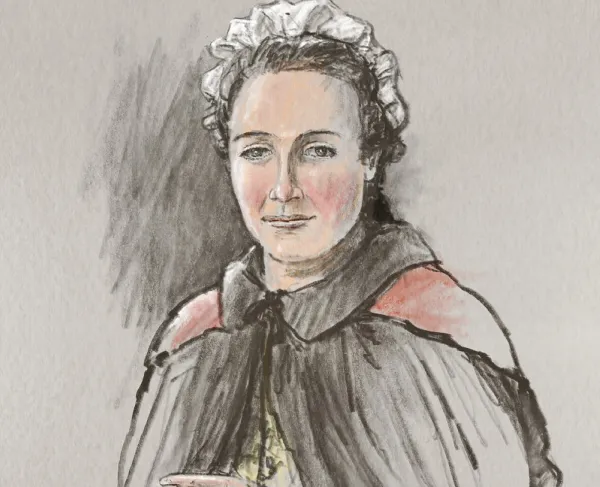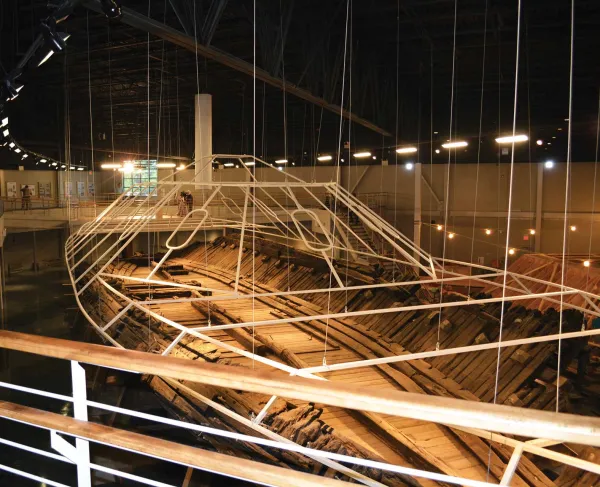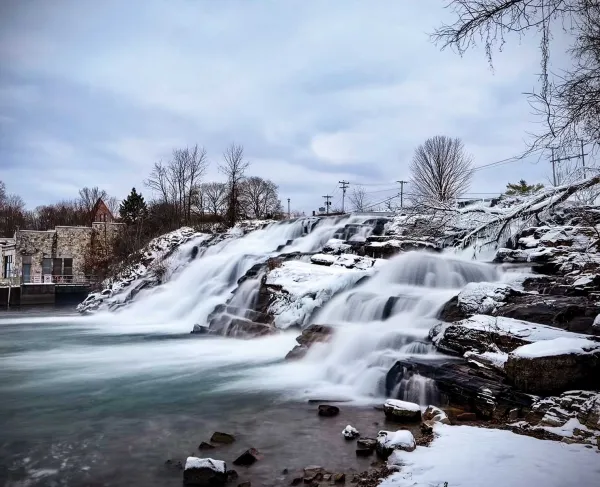Interview with American Battlefield Trust's 2018 Abroe-Carter Award Winner: David Niekum
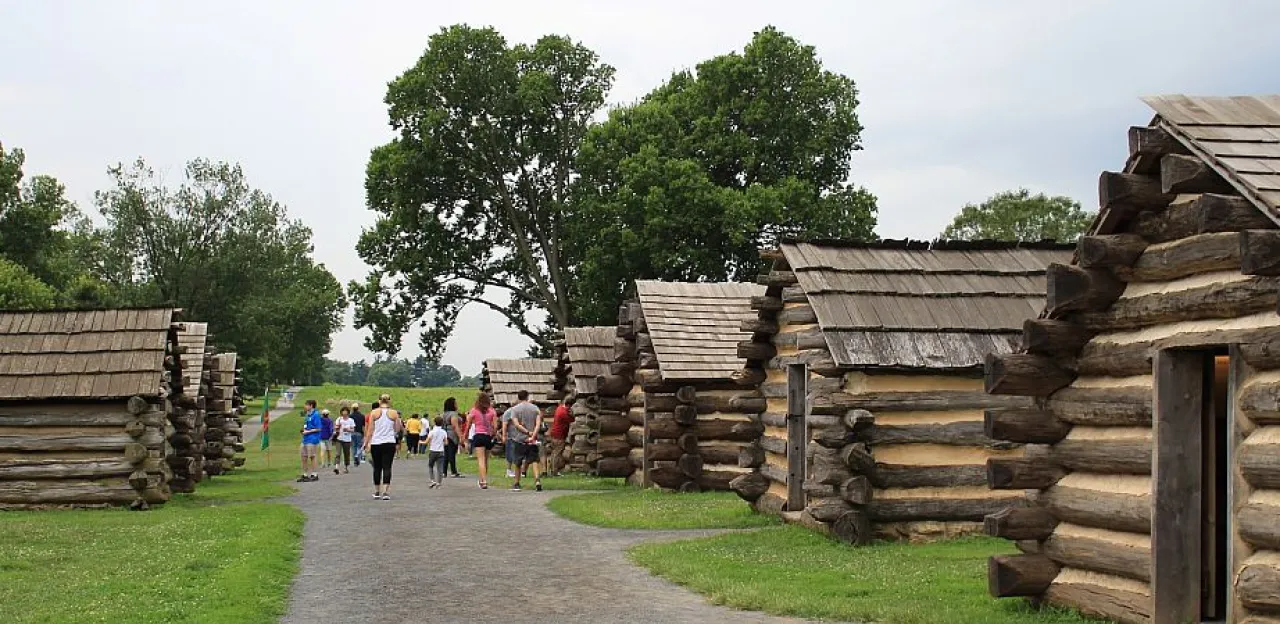
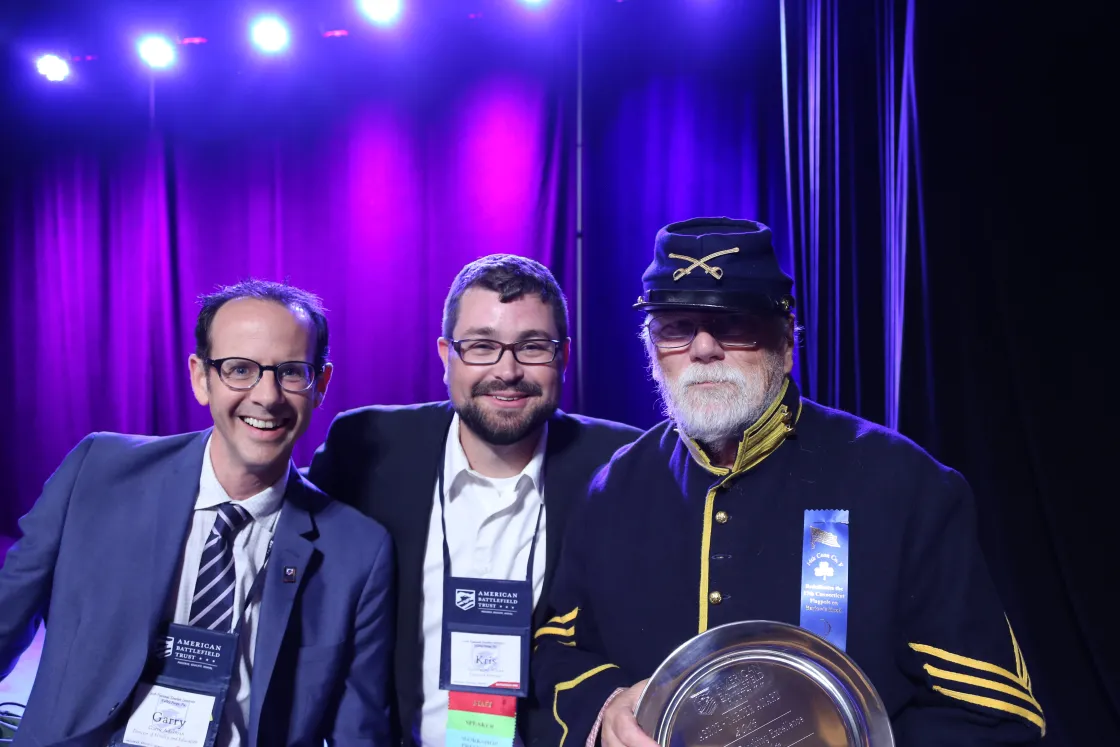
Recently, the American Battlefield Trust had a conversation with Dave Niekum, a teacher at Avella Junior/Senior High School in Avella, Pennsylvania, to touch base about his experiences with the American Battlefield Trust, personally and professionally.
Niekum was named the Trust’s Abroe-Carter Award winner last summer. That honor is awarded to the most dedicated educators in the field. Niekum is a teaching veteran; he has been part of the profession 40 years and continues to learn alongside his students. He praised the Trust for their consistent work to move forward and for their family-like connection to one another.
Read the full interview, edited lightly for clarity and continuity, below:
What got you started with teaching in the first place?
Believe it or not, when I was in Vietnam, I just realized that I had wasted my time with high school and that I guess I was a late bloomer. They didn’t have learning disorders.
When I was in college my one professor asked me, junior year in college, if I had ever been tested for learning disorders. I said no, and she asked if she could test me. I said sure. Basically, she said I came up with a classic learning disorder. By then I had learned to overcome the learning problems I had. In high school, instead of thinking I was stupid, I acted like I was the class clown. It was easier to act that way and say I was dumb. It was a combination of the military, self-discipline and realizing that there were other kids out there like me that maybe I could help with.
That’s awesome. What’s your particular passion for the Civil War?
Being from PA, I go up to Gettysburg at least six times a year. I have an affinity for Antietam, also. I usually stop there on my way up to Gettysburg. The last two years I’ve gotten to take a group of kids from high school. I had wanted to do this for a while. This was my third foray into it this past spring—taking a field trip up to Gettysburg. The Trust played a very big part in it because I had Garry Adelman from the Trust come up and spend about six hours with us the one afternoon. He was absolutely awesome.
We covered a lot of ground. He brought some 3D pictures that he has blown up, and we went to the different places on the battlefield where those pictures had been taken. His knowledge and his excitement for the whole thing was just amazing. He’s an amazing person.
Do you have a favorite personal memory related to teaching the Civil War or learning yourself?
I think it would probably be the last two years, the field trips I took. I teach in a very small, rural school district. It’s a small public school in a rural area of Pennsylvania right on the border with West Virginia. To take kids up, who got really excited about going to Antietam and going to Gettysburg, and the response to seeing the Cyclorama, the response to the ranger program, the response to Garry this year.
I enjoy taking some of my artifacts in. To see the excitement and to have kids react in such a wonderful, positive way, is really neat. We got to do so many things. I’m great friends with the guy who is a photography studio in Gettysburg. We did a photography session with the whole process. I dressed some of the kids up with myself. He explained the whole process, went over the chemicals, how dangerous they were, and gave the kids a little history of photography and just let them see the whole process. He let them take digital pictures, told them they could keep them on their phones. Just seeing kids get excited about something that I love was really neat.
It sounds like you’ve done a solid job of keeping your students engaged and getting them excited about the Civil War. Would you say that it’s easy or difficult to teach the Civil War in today’s educational environment, and why?
It’s hard in a way, because I think social studies sort of gets pushed to the backburner a lot. Everything is focused on math and science and English. I think sometimes those social studies classes get pushed to the backburner, not just in our school, but in a lot of schools.
There are authors who I read who talk about, maybe instead of just teaching facts, we need to teach the stories.
That’s one of the things I do with the kids. There was a young captain from Avella who was killed in Gettysburg. When he was killed, his men buried him, and they carved his initials so that his parents were able to find that rock, go dig him up and take his body back to Washington, PA. That rock is still in Gettysburg. We went in and found that rock. I have that last letter he wrote home out of a book that has all the letters he wrote home during the Civil War.
I think you share the stories. I know that if you hook them on the story, the other stuff will come with it. That’s the way I keep them interested.
What are some of the other things you do in your classes to teach the Civil War, beyond taking field trips and sharing personalized stories?
I take a lot of my Civil War memorabilia, some of my rifles. I’m in a district that isn’t afraid to allow me to bring in some of the weapons I have. I also have the discharge and promotion papers of those who they belonged to. I have a pistol that belonged to a Pittsburgh soldier. You walk in and you let the kids hold these things and talk to them about it and tell them these stories. That gets their imaginations and interests fired up, I think.
Where do you get all of that memorabilia from?
I’ve been collecting it for quite a while, over the years. I’m very careful where I buy. Some of my friends from the Trust who I travel with in the summer, all collect stuff. It’s just some things I’ve picked up over the years. Some things are just things that interested me.
Kids holding an artifact, it means so much more than just looking at a picture of it in a book or online.
Thankfully the district allows me to bring in not only the artifacts but also the rifles, the pistols and the swords I have. The kids get to hold these things and it makes a difference.
I don’t just do it at my school. I also do the same in different schools.
The other thing I’ve done over the years, is when I find a student who I think has done something need or interesting, when the Trust has the fundraisers, I donate money in the names of students so their names will go up on signs and battlefields. I have quite a few from over the years.
How has the Trust supported you inside the classroom and inside the realm of personal development?
I’ve been to every Institute that they’ve done. There are just a few of us left who have been to all of them. I look forward to those each summer. I’ve made friends there, some of whom I ended up traveling with some years ago.
I’ve gotten to know people like Gary Adelman. The speakers, and the battlefields, and the experts that the Trust provides have just given me so many opportunities that I wouldn’t have otherwise.
The Trust has a great curriculum to use in the classroom. There are so many things the Trust provides teachers with for free that can be used to supplement their classes. It’s just an amazing organization.
I think the Trust gives me my biggest bang for my buck with any donation I make. I certainly believe that.
Is there anything else you want to mention about the Trust?
The summer I won the Abroe-Carter Award, I never saw it coming. To walk through a group of teachers and have them recognize all the years I’ve put in, that was an awesome moment. It was so nice when Gary presented the award to me; he talked about how sometimes when they give these awards, they don’t know the people, but it was nice to have someone he knew to give it to. He called me part of the Trust family. The people at the Trust have become family. I look at that as more than just a resource. I’ve gotten to know so many wonderful people because of the Trust.
